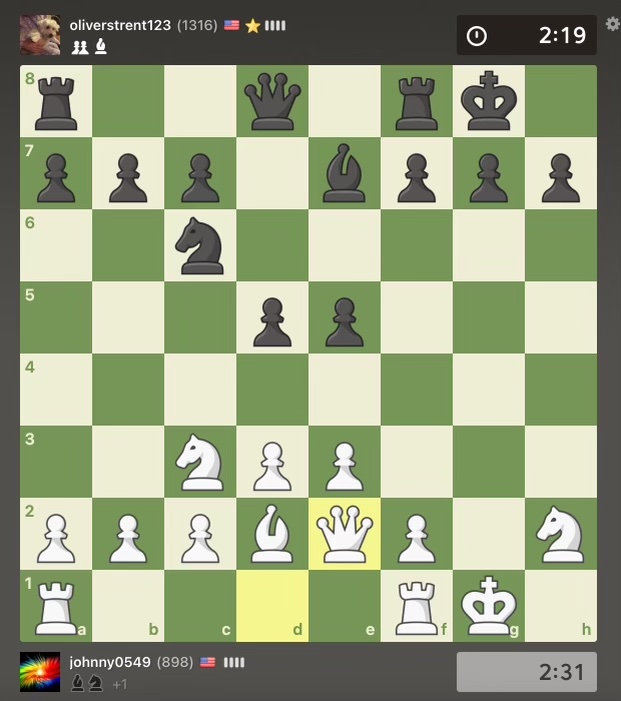Chess club thrives virtually
Chess club members play virtually using the online platform chess.com.
May 20, 2021
Logging onto Zoom with the online platform chess.com open on his computer, sophomore and founder of the chess club Josef Kay prepared for a meeting he did not imagine having prior to the coronavirus pandemic. Although Kay had played virtual chess before, it never crossed his mind that the entire club would have to operate virtually.
A couple of weeks into the shutdown last spring as a result of the pandemic, Kay sent out an email to gauge whether students were interested in continuing the chess club in a virtual format. As it turned out, attendance at the first meeting was similar to that of pre-pandemic sessions. In Kay’s mind, there are several benefits to the chess club being online, including longer and more convenient sessions.
“Many weeks we go from 8 to 10 p.m. … so we are definitely having longer sessions,” Kay said. “Also, we’ve had some random meetings anytime during the week. … This definitely is [a positive of the virtual format], people don’t have to meet with teachers at 9 p.m. on a Sunday, while many of them do during lunch or CT on a Monday.”
Additionally, as a result of the virtual format, the chess club can do certain activities that would have been difficult or inconvenient to do in-person.
“Sometimes we split into breakout rooms and we play as teams and alternate moves,” sophomore Oliver Strent said. “…[it would be possible in-person] but it would be harder because breakout rooms completely disallow the other team from hearing you, so [in-person] you would kind of have to step away and not be at the board.”
However, many believe that there are also downsides to the chess club being virtual. Adviser Aaron Thual noted that not being in the same room as your opponent creates a different environment.
“It’s definitely a different experience not being across from the actual person you’re playing. There’s something impersonal about it,” Thual said.
Strent noted that as a result of the chess games taking place via chess.com, every game counts towards a player’s rating, which he understands can be stressful for some.
“Rating represents your skill level, and sometimes it can be kind of intimidating playing someone whether they’re in chess club or not who has a much higher rating,” Strent said. “… I really don’t mind the ratings, I actually kind of like … that my skill level gets to be represented by a number.”
Some of these potential issues have been addressed to an extent as the club started meeting up a couple months ago at Wall Park in North Bethesda. During these Sunday meetings, students meet up for a socially distanced in-person gathering in addition to their weekly virtual meetings.
“We’re still communicating and we’re all friends. It would be awkward if it was a forced thing. Sometimes it’s awkward at school how we have [to wear] masks. It’s not like that because we all want to be there,” Strent said.
Considering there are benefits and drawbacks to the virtual and in-person formats, Kay imagines that the future of the club will remain as a hybrid format. The virtual component will enable the club to continue over breaks and make it easier for interscholastic tournaments to be played.
“I am hopeful that in the future over winter break or over summer break … I can host an online chess club,” Kay said. “… I do hope to do tournaments with other schools, and if online is the best way to do it because of scheduling and it’s difficult to get all the clubs into one school building, if online tournaments with other schools is the best way to go, I am happy to do that.”








